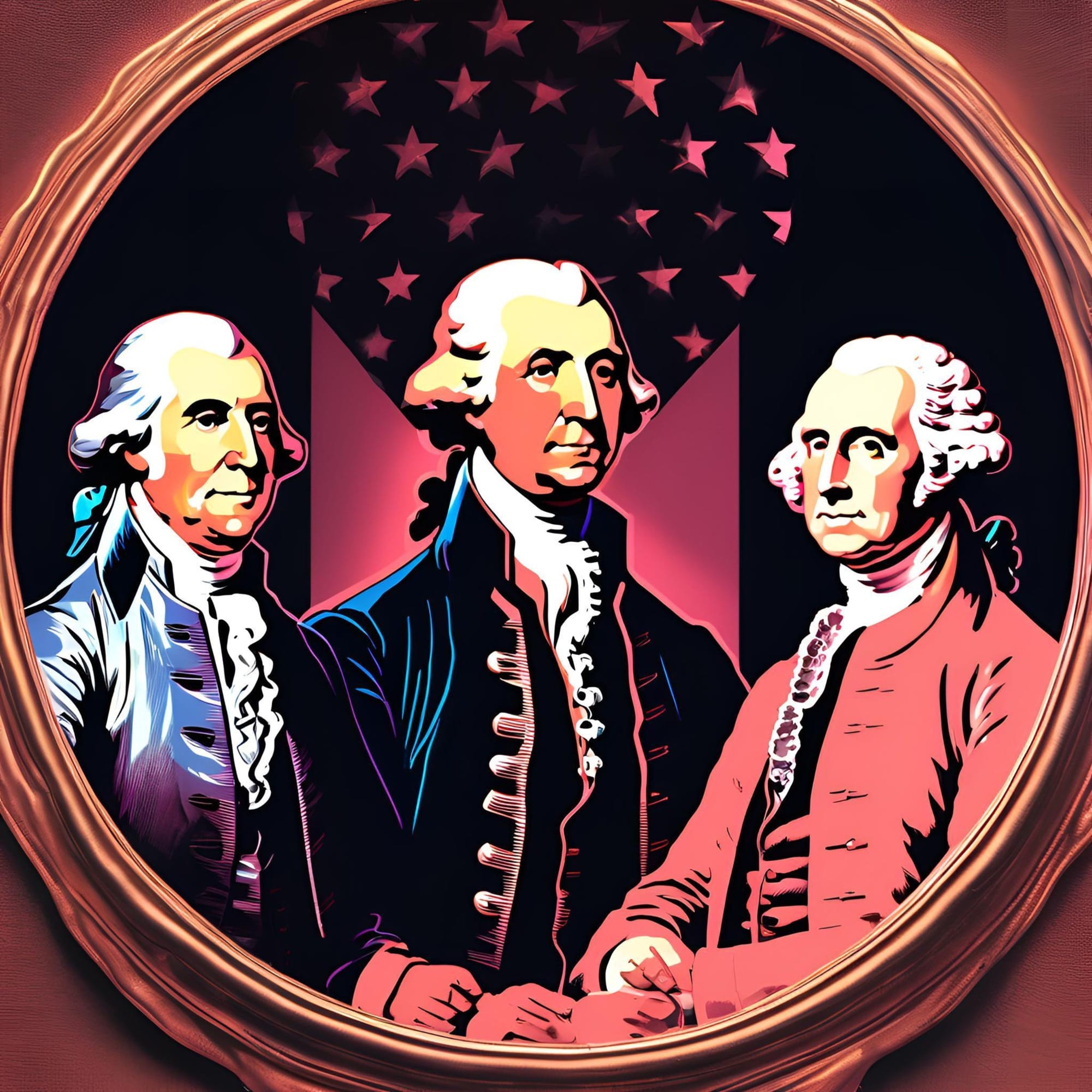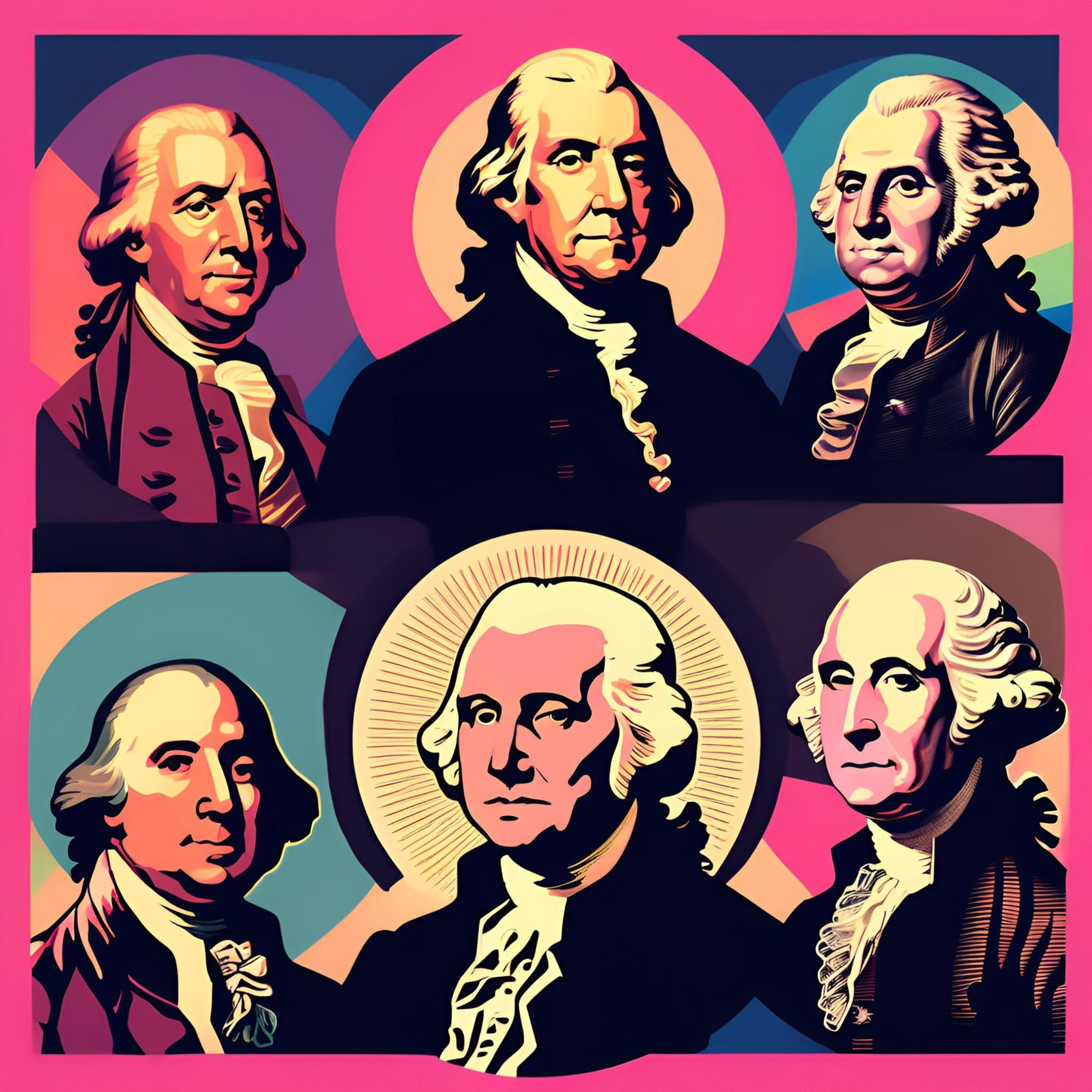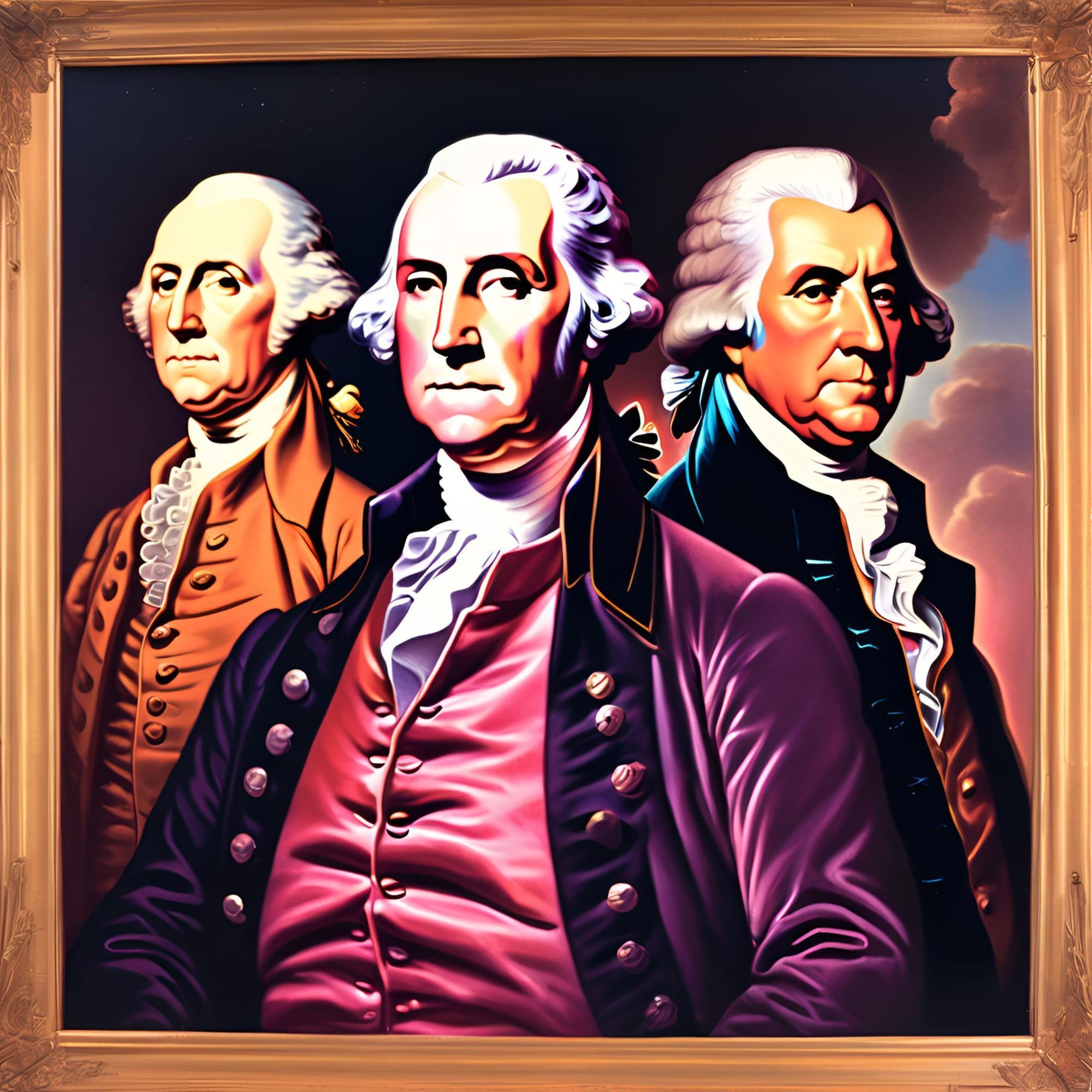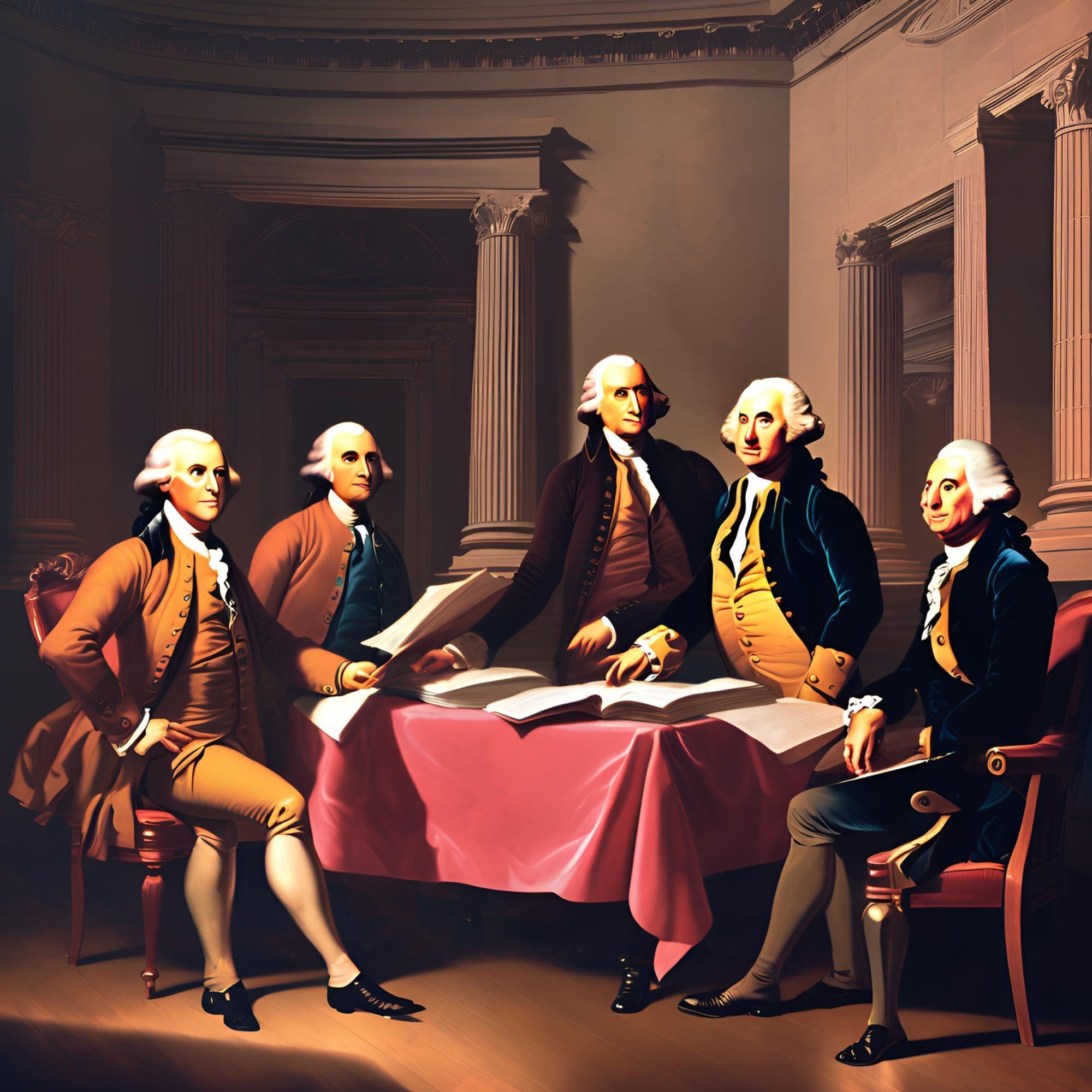"Do You Share the Ideals of the Founding Fathers? A Personal Reflection on Values and Civic Engagement"










buymeacoffee.com coming soon..
Introduction to the Founding Fathers and Their Ideals
The Founding Fathers of the United States are revered figures in American history, known for their pivotal role in shaping the nation’s identity and governance. Comprising a diverse group of visionaries, including George Washington, Thomas Jefferson, Benjamin Franklin, John Adams, and James Madison, they laid the groundwork for a republic founded on principles that continue to resonate today. Their ideals—rooted in Enlightenment thought—emphasized individual liberty, democratic governance, and the pursuit of happiness.
At the heart of their philosophy was the belief that all individuals possess certain unalienable rights, including life, liberty, and the pursuit of happiness. This revolutionary notion challenged the prevailing norms of monarchical rule and sought to empower citizens in their own governance. The Founding Fathers argued for a system that would protect these rights through a balanced government, ensuring that power remained with the people rather than a select few.
Moreover, they envisioned a nation where dialogue and debate were essential to the democratic process. They understood that a healthy democracy thrives on the exchange of diverse opinions and perspectives, advocating for the importance of civic engagement and critical discourse. Their commitment to these ideals laid the foundation for the freedoms we cherish today, urging future generations to uphold the principles of individualism, self-reliance, and respect for differing viewpoints.
As we delve into the personal values and beliefs that align with the Founding Fathers' vision, it becomes essential to consider how these historical ideals shape our contemporary understanding of civic responsibility and engagement. Do our modern values reflect their aspirations for society? And, perhaps most importantly, how do we measure our alignment with their ethos in our daily lives? This exploration not only honors their legacy but also invites us to reflect on our role as active participants in shaping the future of our democracy.
Personal Values and Beliefs
To consider whether the Founding Fathers of the United States would appreciate your character and ideals, it is essential to explore the foundational values that shaped their vision for the nation. These values continue to resonate in contemporary society, and an understanding of them can provide insight into how your personal beliefs align with those of the nation’s architects.
Understanding Individualism and Self-Reliance
At the heart of the Founding Fathers' philosophy is the principle of individualism. They believed that each person possesses the right to pursue their own path and make choices that reflect their unique circumstances and aspirations. This ideal was rooted in the belief that self-reliance empowers citizens to take responsibility for their lives and contribute to society in meaningful ways. If you value independence, strive for personal growth, and embrace the idea that each individual can shape their own destiny, you may find common ground with the Founding Fathers.
The Importance of Liberty and Freedom of Choice
Central to the ethos of the Founding Fathers was the concept of liberty—the freedom to act according to one’s own will without undue interference. They championed the idea that rights are inherent and should be protected by government, allowing individuals to express themselves and make choices without fear of oppression. If you prioritize personal freedom and advocate for the rights of others to choose their own paths, you align closely with the principles that fueled the American Revolution and the subsequent establishment of a democratic society.
Respect for Diverse Opinions and Dialogue
The Founding Fathers understood that a healthy democracy thrives on dialogue and the exchange of diverse perspectives. They engaged in spirited debates and recognized the importance of differing opinions in shaping a robust political landscape. If you value respectful discourse and are open to considering varying viewpoints, you embody a key tenet of their vision. Embracing dialogue not only fosters understanding but also enhances the democratic process, reflecting a commitment to the ideals of tolerance and collaboration that the Founding Fathers held dear.
In summary, your personal values and beliefs regarding individualism, liberty, and dialogue are crucial in assessing how the Founding Fathers might view you. By examining these principles and reflecting on how they manifest in your life, you can better understand your alignment with the foundational ideals of the United States.
Engagement with Civic Duties
Engagement with civic duties is a cornerstone of a thriving democracy, and the Founding Fathers placed immense value on the active participation of citizens in their governance. They believed that a well-informed and engaged populace was essential to safeguarding liberty and ensuring the health of the republic. To ascertain whether you align with their ideals, it is crucial to explore various facets of civic engagement.
Participation in Community Service and Local Governance
The Founding Fathers recognized that democracy begins at the local level. They championed the idea that citizens should take an active role in their communities, not only to address immediate needs but also to foster a sense of shared responsibility and collective action. Participation in community service reflects a commitment to the common good—a value that resonates deeply with the ideals of the Founding Fathers.
Engaging with local governance—whether through attending town hall meetings, serving on community boards, or advocating for policies that promote the welfare of your neighborhood—demonstrates a willingness to contribute to the democratic process. This local involvement cultivates a sense of ownership over the political landscape, echoing the Founders' belief in government by the people.
Voting and Understanding Political Systems
Voting is one of the most fundamental rights and responsibilities bestowed upon citizens in a democracy. The Founding Fathers fought for the establishment of a system where the voice of the populace could be heard, and they recognized the significance of informed voting. Engaging with the political system—understanding candidates, policies, and the implications of legislation—is essential to making choices that align with personal values and the greater good.
Moreover, exercising the right to vote is a powerful way to honor the sacrifices made by the Founding Fathers and countless others who fought for the freedoms we enjoy today. Your participation in elections is not only a statement of your beliefs but also a vital mechanism for shaping the society in which you wish to live.
Engaging in Civic Discussions and Debates
The Founding Fathers valued open dialogue and vigorous debate as crucial components of a healthy democracy. Engaging in civic discussions—whether in informal settings or more structured forums—allows for the exchange of diverse perspectives and the fostering of mutual understanding. The ability to listen actively, articulate one’s own views, and respectfully challenge opposing opinions is essential to the democratic process.
Participating in debates about civic issues can help cultivate a deeper understanding of different viewpoints and the complexities of governance. This engagement not only enriches your own perspective but also honors the Founders’ vision of a society that thrives on intellectual discourse and the free exchange of ideas.
In summary, active engagement with civic duties—through community service, voting, and open discussions—aligns closely with the principles upheld by the Founding Fathers. By participating in these activities, you not only honor their legacy but also contribute to the vibrant tapestry of democracy that they envisioned.
Cultural and Historical Perspectives
To fully appreciate whether the Founding Fathers would resonate with you today, it is essential to delve into the cultural and historical context that shaped their ideals and vision for the United States. Understanding this backdrop not only highlights the significance of their contributions but also allows us to evaluate how these foundational principles align with contemporary values.
Appreciation for the Historical Context of the United States
The Founding Fathers operated within a tumultuous historical framework marked by revolution, colonial oppression, and a quest for self-determination. Their experiences with tyranny and governance informed their belief in the importance of individual rights and collective liberty. To engage with their ideals, one must recognize the historical struggles that led to the creation of the Constitution and the Bill of Rights. This context fosters a deeper comprehension of the sacrifices made for the freedoms we enjoy today and encourages a sense of responsibility in upholding these principles.
Understanding the Founding Fathers' Vision for the Nation
The vision articulated by the Founding Fathers was one of a republic built on the principles of democracy, equality, and justice. They dreamed of a nation where citizens could participate in governance and where the government was accountable to the people. This vision was not without its flaws—often excluding marginalized groups—but the underlying ideals of representation and the rule of law remain pivotal. Engaging with their vision requires a critical analysis of how far we have come in realizing these aspirations and how we can continue to strive toward a more inclusive and equitable society.
Evaluating Modern Societal Values Against Historical Ideals
As we reflect on our personal values and beliefs, it is crucial to evaluate them against the historical ideals espoused by the Founding Fathers. Are we fostering a culture that prioritizes liberty and justice for all, or are we falling short in certain areas? Issues such as social justice, economic disparity, and political polarization challenge us to reconsider how we embody the principles of the founding era. By examining these modern societal values in light of historical ideals, we can gain insight into the ongoing relevance of the Founding Fathers’ visions and how they continue to shape our national identity.
In this exploration of cultural and historical perspectives, we can better assess our alignment with the Founding Fathers. Their legacy invites us to engage thoughtfully with our rights and responsibilities as citizens, encouraging a deeper commitment to the democratic ideals that form the bedrock of our nation. Ultimately, by understanding where we stand relative to their vision, we can cultivate a more informed and active citizenry—one that honors the past while striving for a brighter future.
Conclusion: Reflecting on Personal Alignment with the Founding Fathers
As we navigate the complexities of modern society, it is essential to take a moment to reflect on the ideals and values espoused by the Founding Fathers of the United States. Their commitment to principles such as individualism, liberty, and civic engagement continues to resonate in our contemporary discourse. By examining our personal beliefs and actions through this historical lens, we can gain greater insight into our alignment with the foundational ethos of our nation.
If you find yourself valuing self-reliance and the pursuit of personal freedoms, there is a strong chance that the Founding Fathers would appreciate your mindset. They championed the idea that individuals should be empowered to make their own choices, free from undue interference. This emphasis on personal agency is a cornerstone of the American identity and reflects an enduring belief in the importance of each person's journey.
Moreover, the Founding Fathers were advocates for open dialogue and the exchange of diverse opinions. If you engage with differing perspectives and seek to understand the viewpoints of others, you embody a spirit that aligns closely with their vision of a robust democracy. The ability to engage respectfully in civic discussions and debates is crucial to the health of our political system and mirrors the very debates that shaped our nation’s founding.
Participation in civic duties, such as community service, voting, and local governance, also signifies a commitment to the collective betterment of society. The Founding Fathers recognized that a functioning democracy requires the active involvement of its citizens. If you take steps to contribute to your community and participate in the electoral process, you are not only honoring their legacy but also reinforcing the democratic ideals they fought to establish.
Finally, appreciating the historical context from which these ideals emerged helps us understand their significance in today's world. By evaluating modern societal values against the principles articulated by the Founding Fathers, we can better navigate the challenges we face. This reflection allows us to discern the ways in which their vision can inform our actions and beliefs in the present day.
In conclusion, contemplating your alignment with the Founding Fathers invites a deeper understanding of your role as a citizen in a democratic society. By embracing their ideals of individual liberty, civic engagement, and respectful dialogue, you contribute to the ongoing legacy of those who laid the groundwork for the United States. Ultimately, the question of whether the Founding Fathers would "like" you may be less about personal approval and more about shared values and actions that uphold the principles of freedom and democracy they championed.






Member discussion